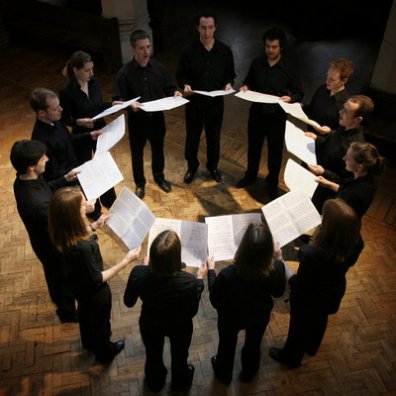Our local schola continues its exploration of Motecta Trium Vocum with Kevin Allen’s Anima Christi. Here is a sample of this pretty piece:
Anima Christi by Kevin Allen, sung by Matthew J Curtis:Sample from Corpus Christi Watershed on Vimeo.

Catholic musicians gathered to blog about liturgy and life
Our local schola continues its exploration of Motecta Trium Vocum with Kevin Allen’s Anima Christi. Here is a sample of this pretty piece:
Anima Christi by Kevin Allen, sung by Matthew J Curtis:Sample from Corpus Christi Watershed on Vimeo.
Wikipedia tells us that: “Pope Paul VI promulgated the revised rite of Mass with his Apostolic Constitution Missale Romanum of 3 April 1969, setting the first Sunday of Advent at the end of that year as the date on which it would enter into force. However, the revised Missal itself was not published until the following year, and full vernacular translations appeared much later.”
The new English translation, then, appears on the first day after the close of the 40th year. Call me cranky or crazy, but I’ve never been interested in this numerology stuff, and there is a Biblical significance to the number 40.
Does anyone know anything about this translation of the Bible? I just found it this morning and it seems to have been completed in 2009. If I were to guess, I would guess that this is an effort to give Catholics a dignified translation of Scripture, quite possibly in accordance with Liturgiam Authenticam, which they can use without being assessed copyright or royalty fees.
So far the psalms look very nice and are very much of a “modern sacral” character, similar to the texts I’ve seen of the new Missal translation.
Please share, if you would, any information that you might have about this translation!
This is a tremendous interview with monks at Clear Creek. Extremely inspiring! Good for EWTN, and congratulations to the skilled producer David Biddle.
A brief trawl of the internet produces a surprisingly wide variety of styles of settings of the proper texts which range from simple chants that can be sung without accompaniment to choral settings for mixed voices. Some are obviously adaptations of Gregorian Chant or are indebted to that musical language, others are more contemporary in feel…. Of course, there is nothing to stop us singing Latin chants in a predominantly English liturgical celebration. – Msgr. Andrew Wadsworth, ICEL
Let’s look at the options for this weekend’s entrance proper, Miserere mihi: “Have mercy on me, 0 Lord, for I have called out to you all the day; for you, 0 Lord, are good and forgiving and plenteous in mercy to all who call upon you.”
I count nine available for download. Perhaps I’m missing some.
We begin with the normative choice, the entrance from the Graduale Romanum (same text as the Missale) which we take here from the English-language Gregorian Missal.
Once that normative choice is established, we immediately note that it takes some degree of practice to be able to sing this. A beginning choir feels out of sorts just looking at it (though it isn’t as hard as it looks).
So let’s explore other options, beginning with the easiest one from the Anglican Use Gradual:
Now consider the Psalm tone offering of Fr. Samuel Weber:
Next comes a selection from Fr. Columba Kelly and the SacredMusicProject.
Next, the choice of the Arbogast Propers published in 1966:
A very popular resource for propers is Bruce Ford’s American Gradual:
Next, the choice of the Palmer-Burgess Gradual and also repeated in Introits of the Sarum in English:
Now something completely unexpected, a selection from Introits and Graduals for the Church Year by Healey Willan – a Lutheran resource:
I will end this tour of introit propers online with a selection from Richard Rice’s Simple Choral Graduale, which is undoubtedly the one to which Msgr. refers above.
Everything shown above is a free download (Rice is a $7 download). Some are in print. So we can see that there is not a lack of options. There is a lack of knowledge, and a lack of will that thus results. Msgr. Wadsworth is precisely right that we have to change the consciousness.
 Yesterday, the conductor-less polyphonic chamber choir Stile Antico, recently featured on the Chant Café, performed and discussed some of the music from their latest recording “Song of Songs” on the BBC Proms. I thought it might a good follow up to our previous coverage of this fantastic young British polyphonic group.
Yesterday, the conductor-less polyphonic chamber choir Stile Antico, recently featured on the Chant Café, performed and discussed some of the music from their latest recording “Song of Songs” on the BBC Proms. I thought it might a good follow up to our previous coverage of this fantastic young British polyphonic group.
Thomas Wilson is only 28 years old but as the new director of music he is bringing glorious things to St. Mary’s Cathedral in Sydney, Australia. Trained at Westminster, he is working to bring Gregorian propers and traditional polyphonic music to this very important liturgical venue. Have a look at the full program for this week, and dream.